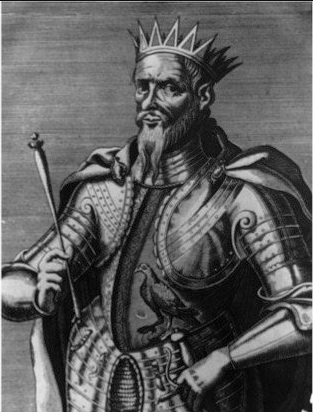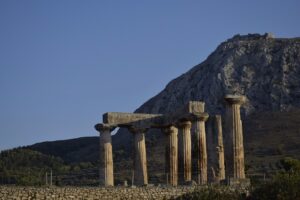Attila was a fearless and ferocious warrior, who was also ambitious and astute. His reputation preceded him and he was known for his ability to lead troops into battle. The Huns were known for their fearsome war tactics—Attila wasn’t afraid to push his men far beyond what they thought they could do. one of the most successful barbarian rulers of the Hunnic Empire, attacking the Eastern and Western Roman empires.
Attila the Hun, one of the most successful barbarians, The ruler of the Hunnic Empire, assaulted the Eastern and Western Roman empires.
Who Was Attila the Hun?
Attila the Hun, a 5th-century king of the Hunnic Realm, ruined lands starting from the Black Sea to the Mediterranean, motivating anxiety throughout the late Roman Empire Called “Flagellum Dei” (meaning “Scourge of God” in Latin), Attila consolidated power after killing his sibling to end up being the single leader of the Huns, extended the rule of the Huns to include numerous Germanic tribes and also assaulted the Eastern Roman Empire in the battles of extraction. He never attacked Constantinople or Rome, as well as left a divided household following his death in 453.

Early Life and becoming the ruler of the Hunnic Empire.
Born in Pannonia, a province of the Roman Empire (present-day Transdanubia, Hungary), C 406, Attila the Hun and his sibling, Bleda, were named co-rulers in 434 of the Huns kingdom. Upon killing his sibling in 445, Attila the hun became the 5th-century ruler of the Hunnic Empire as well as the sole king of the Huns.
Attila united the tribes of the Hun kingdom as well as was claimed to be a just ruler of his own people. Attila was likewise a hostile and callous leader. He broadened the regulation of the Huns to include lots of Germanic people and also attacked Eastern Roman Empire in the wars of extraction, ruining lands starting from the Black Sea to the Mediterranean, as well as an inspiring concern throughout the late Roman Empire.
Rage of Attila the Hun
Attila was notorious for his intense gaze; according to chronicler Edward Gibbon, he regularly rolled his eyes “as if to enjoy the horror he inspired.” He likewise reputedly frightened others by claiming to possess the real sword of Mars, the Roman god of war.
Roman Emperor Theodosius II paid a tribute– essence in 434, security money– to Attila, however, Attila broke the peace treaty, ruining towns along the Danube river before relocating into the empire’s interior and also wiping out Naissus as well as Serdica. After that relocated toward Constantinople (present-day Istanbul), beating the main Eastern Roman forces in a number of fights. Nevertheless, upon getting to the sea both north and also south of Constantinople, Attila realized the impossibility of an assault on the capital’s excellent wall surfaces by his military, which was composed mainly of horsemen. Theodosius II had specifically built the fantastic walls to defend against Attila. Ultimately, Attila retargeted and also ruined what was left of the Eastern Roman empire’s arm.
Attila got into the Balkans in 441. When Theodosius begged for the peace treaty, Attila’s homage was tripled, but, in 447, he struck the realm once again and also bargained yet one more brand-new treaty.
When the brand-new Eastern Roman emperor, Marcian, and Western Roman Emperor Valentinian III, rejected to pay homage, Attila collected a military of half a million guys as well as invaded Gaul (now France). in 451 Attila was defeated at Chalons by Aetius, who had united with the Visigoths.
Final Years and the Legacy of Attilla The Hun
Referred To As “Flagellum Dei,” Attila attacked northern Italy in 452 but saved the city of Rome because of pope Leo I’s diplomacy and the rough form of his very own soldiers. Tale has it that St. Peter, as well as St. Paul, appeared to Attila, threatening to strike him dead unless he work out a deal to settle it with Pope Leo I. Attila the hun died, in 453, and he might have tried again to take Italy.
Attila left behind a split family. His assigned successor, his eldest son Ellac, and his other sons Ernakh and Dengizich fought over control of their daddy’s empire, which was ultimately shared amongst them.
The most memorable quote of Attila the hun Among several unforgettable quotes of his, “there where I have passed, The grass will never.”






